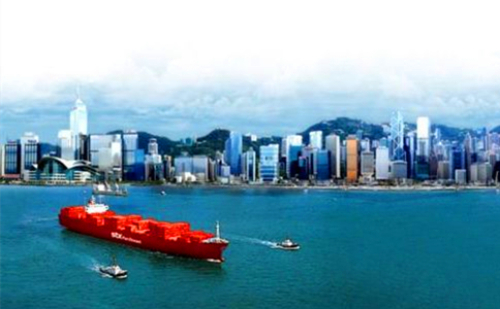Introduction: Logistics and freight forwarding are the names we often see. On the surface, they are related to the transportation of goods. So what's the difference between the two? 1. The third-party logistics operator's identification of so-called third-party logistics is relative to the first party (ie, the seller in the sales contract, the consignor in transit), or the second party (ie, the buyer in the sales contract, the collection in transit). For cargo person). It provides the required services according to the entrustment of the first party and the second party. Therefore, in the logistics industry, logistics operators other than the first party and the second party can be called third parties. Although there are many parties involved in the entire logistics process, the relationship between the parties involved in the contract is very clear. The contractual relationship is: 1. The parties to the contract between the first party and the third party; 2. The parties to the contract between the second party and the third party; 3. The third party And other parties to the contract for transportation, storage, processing, packaging, loading and unloading; 4. Contractual relationships between the first party or the second party and transportation, storage, processing, packaging, handling or other persons.
The hot rolled Steel Ball manufactured by rotary cutting and roll forging, has the advantages of large output, stable quality and high delivery speed,,especially suitable for long association purchasing of large mining groups. Hot Rolling Ball production process is: Raw material -Hot Rolling Mill - Water Quenching -Tempering
Grinding Balls For Mining,Hot Rolling Grinding Ball,Hot Rolling Grinding Steel Ball,Hot Rolling Ball Jinan Zhongwei Casting And Forging Grinding Ball Co.,Ltd , https://www.cngrindingballs.com
Second, third-party logistics management of human and nature modern logistics industry generally has the following classification of third-party logistics: 1, carrier type: mainly ship companies, non-vessel carriers, land carriers; 2, customer agent type : A third party in relation to the first party and the second party, that is, a person entrusted by the first party and the second party to provide services; 3. Warehousing operator type: to provide raw materials, merchandise, or other materials provided by the customer Storage, processing, loading and unloading operators. According to the current activities of the third-party logistics business operators, its nature is: 1. Third-party logistics operators do not own their own goods; 2. Third-party logistics operators can have their own transportation tools, storage facilities, loading and unloading machinery or Other hardware facilities; 3. The third-party logistics operators may provide services to the first party and the second party respectively, and may also provide services to the first party and the second party at the same time; 4. The third-party logistics operators have the services after providing services. The right to collect fees (including commissions and differentials involved); 5. After entering into contracts with the first party and the second party, or after obtaining first- and second-party agency rights, the activities should be carried out within the scope of the contract. Bear the responsibility of the contract, and may not assign the right of transfer to other people; 6, in the law, the third-party logistics operators must be registered and subject to the constraints of relevant laws and regulations. From the perspective of the basic nature of the above-mentioned third-party logistics operators, third-party logistics operators are mainly engaged in business services such as transportation, transportation, warehousing, processing, import and export declarations, import and export inspection, and devanning, etc. Operator. Therefore, the third-party logistics operator's logistics activities for the same commodity are simultaneously subject to a number of contracts.
Third, the relationship between third-party logistics operators and international freight forwarders and NVOCCs The current international freight forwarding industry is mainly engaged in the transportation of goods, the production of import and export documents, the import and export customs declaration on behalf of customers, and inspection and other services. However, once it becomes a third-party logistics operator, its business scope has further expanded, such as sporadic processing of goods, packaging, unloading and unpacking of goods, labeling of goods, distribution of goods, distribution of goods, etc. In addition, third-party logistics operators mostly provide hardware services through software services, and can provide customers with transportation tools, loading and unloading machinery, storage facilities, and effectively use all their own equipment or facilities to obtain greater "additional Value "or" additional benefits". However, even though international freight forwarders are engaged in third-party logistics, or become third-party logistics operators, their status is still limited by the definition and third-party logistics services at a higher level. It can be said that international freight forwarders and non-vessel carriers are, to a certain extent, the basis for the formation of third-party logistics operators. From the perspective of the “origins†of third-party logistics operators, most of them are international freight forwarders, warehousing operators, and transport operators. They are entering the logistics industry while operating traditional businesses and gradually provide customers with some or all of their logistics services. The "evolution" process can be clearly seen from the changes in the listing of their companies. However, this should be in line with the business it is engaged in, and it cannot be "hyped up" for the company to enter the logistics industry. International freight forwarders engaged in the third-party logistics industry not only has its business foundation, but also is the inevitable result of the professional division of labor and the development of market competition.
The difference between logistics and freight forwarding has been described in detail above, and now we can all understand the two concepts!